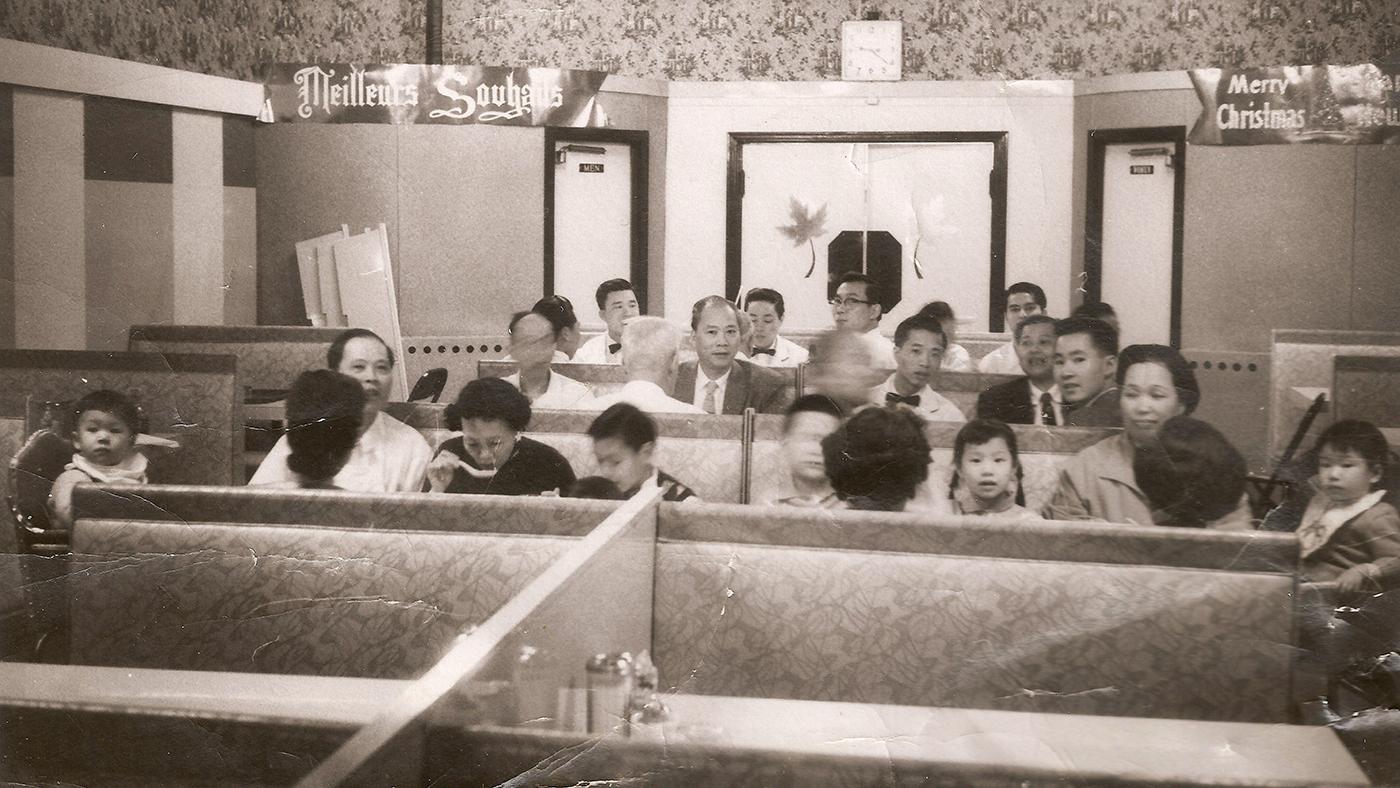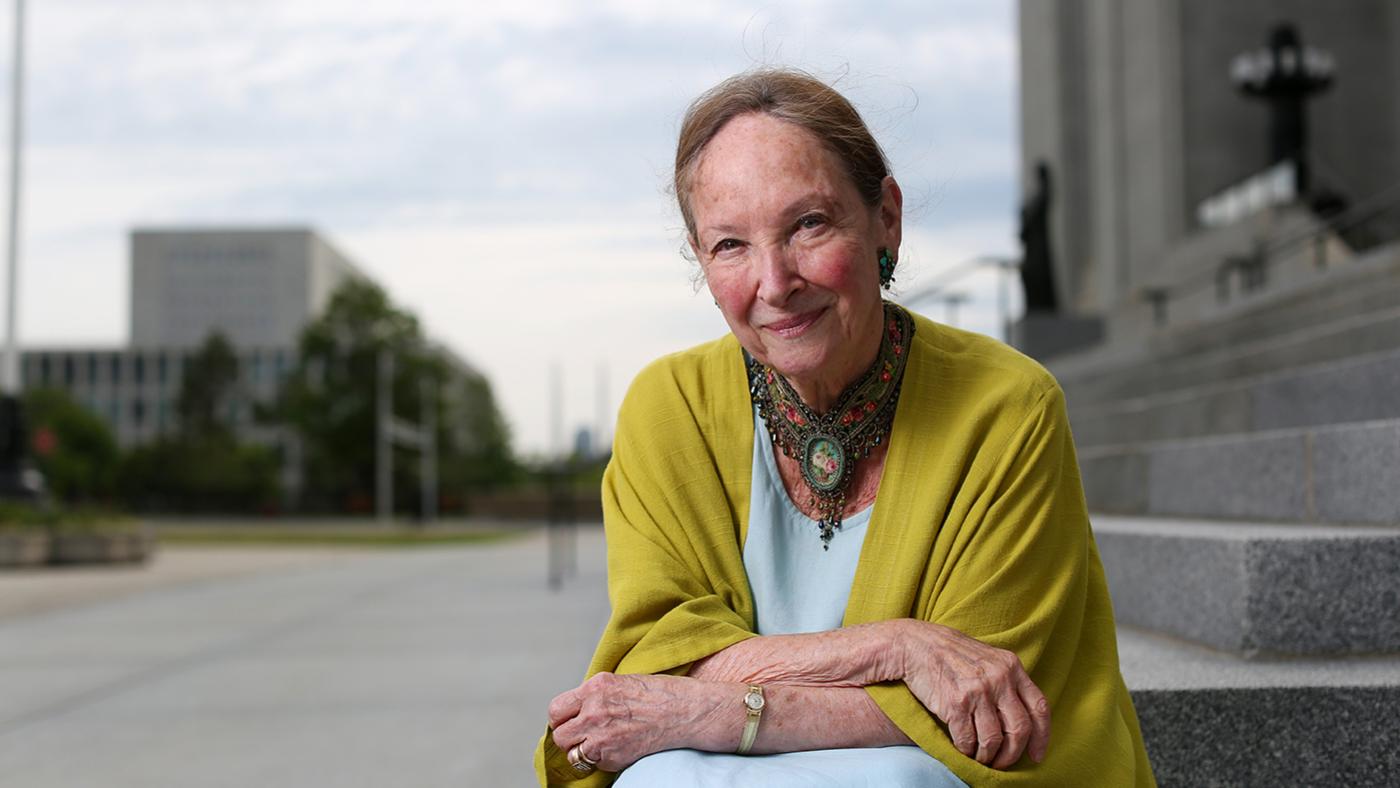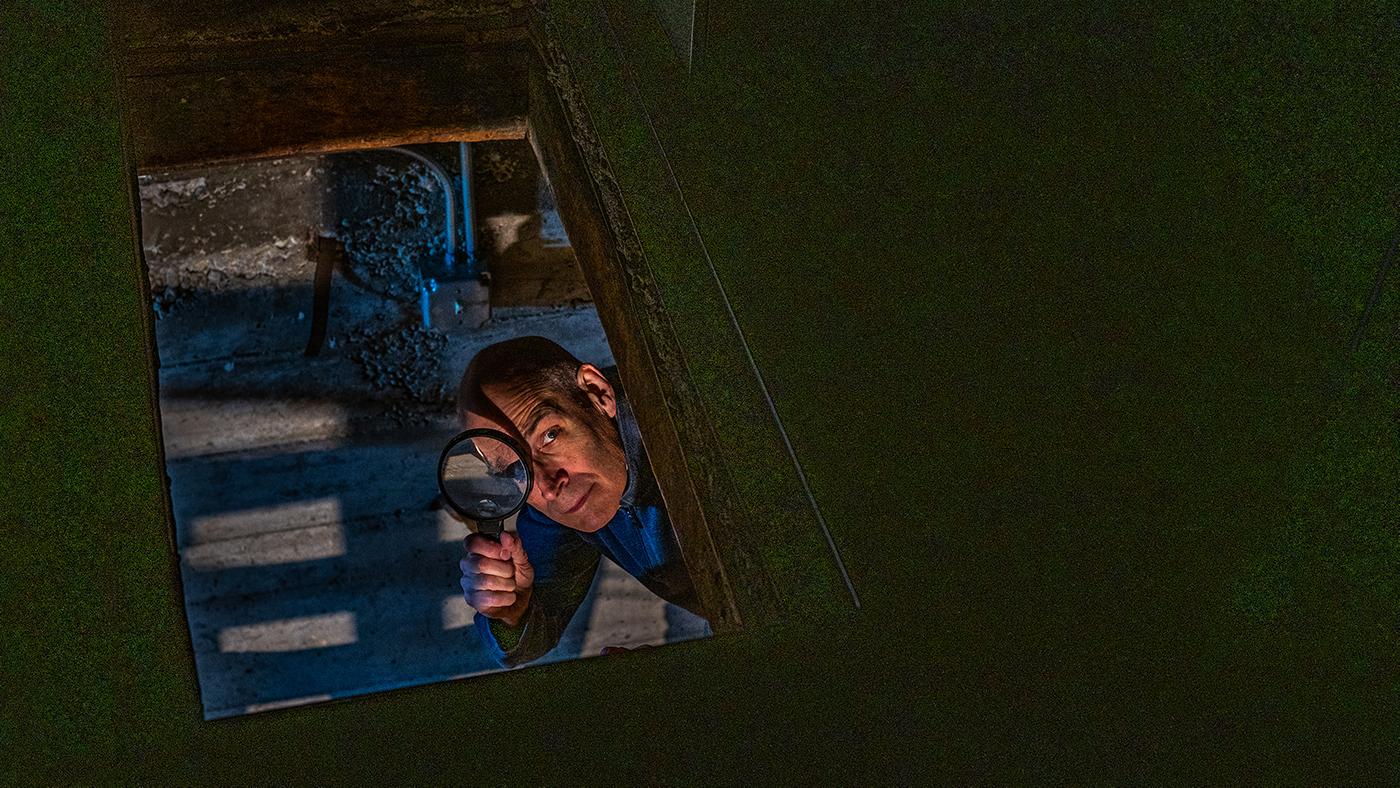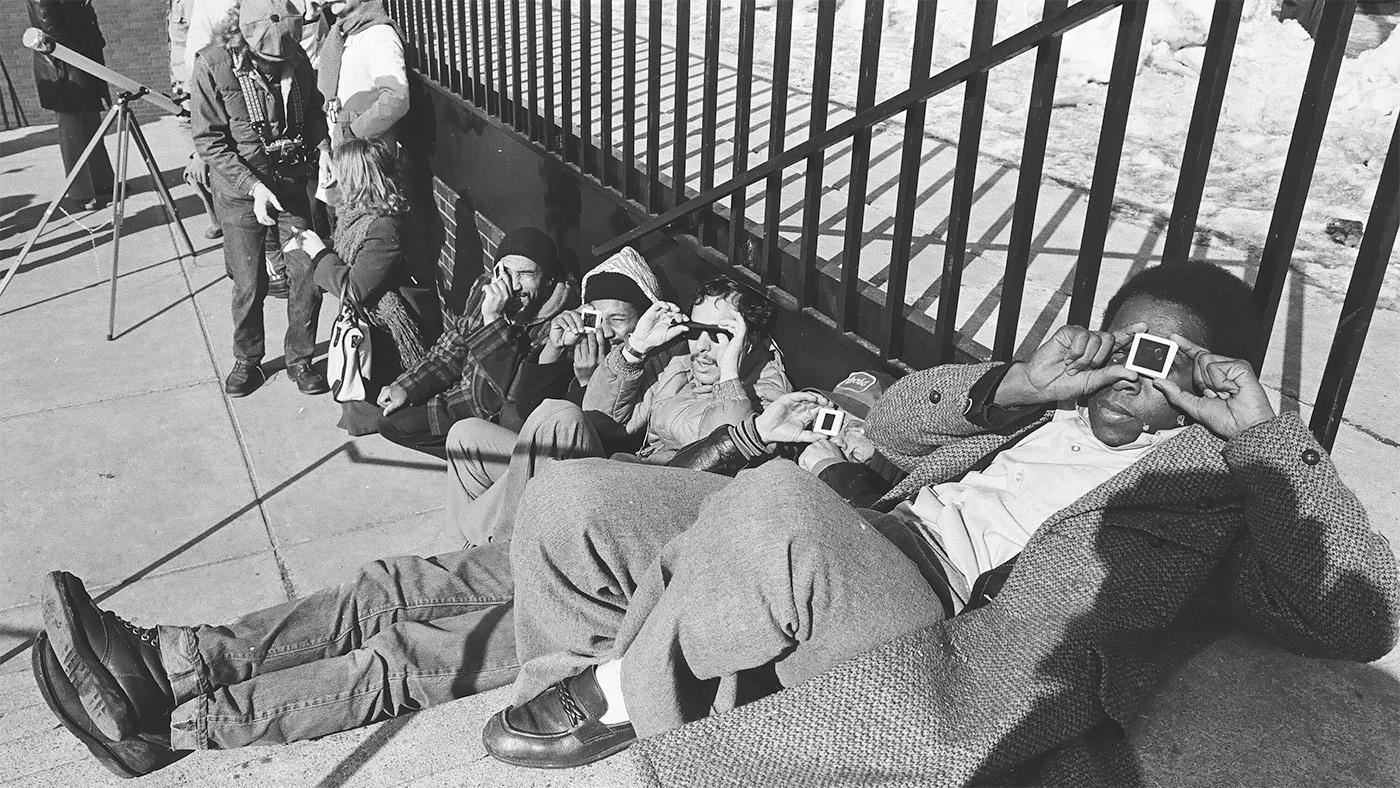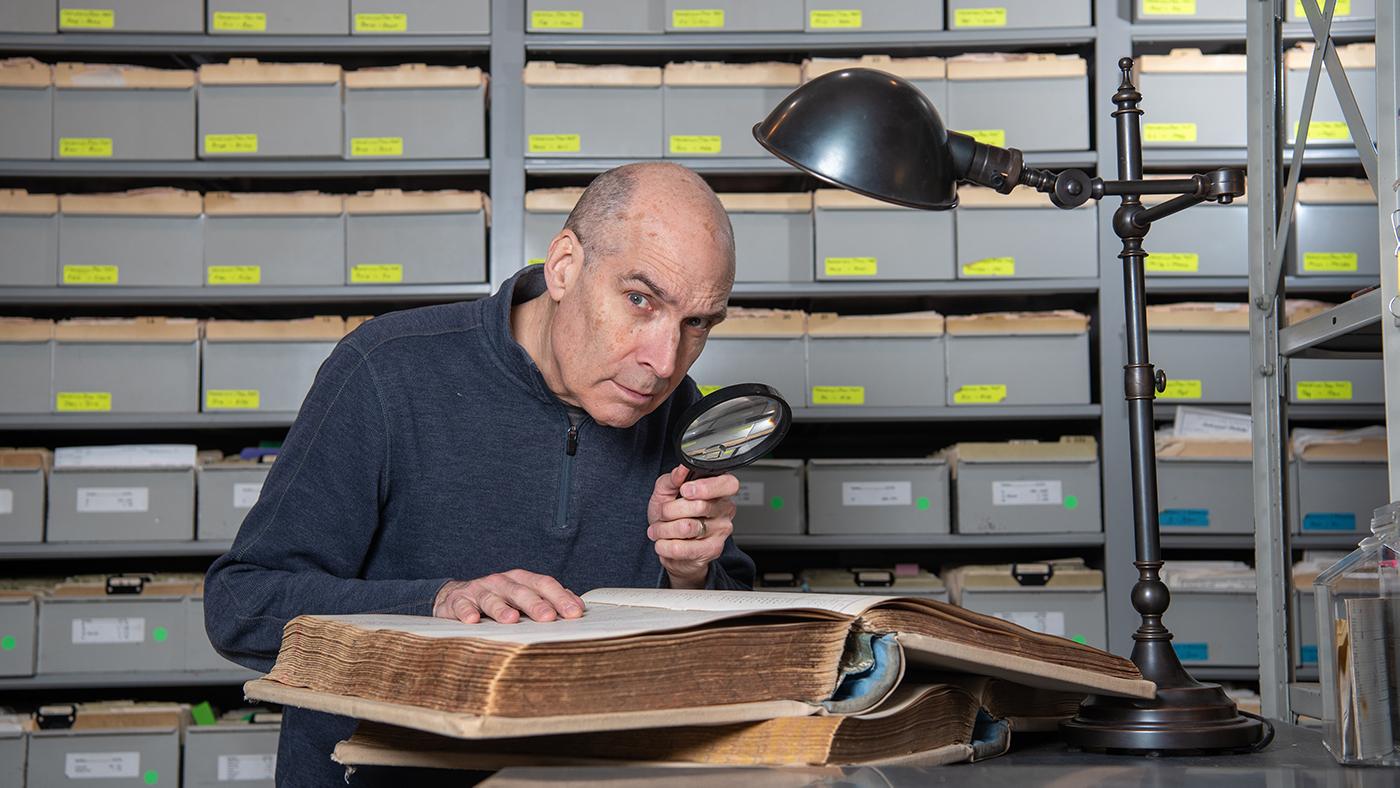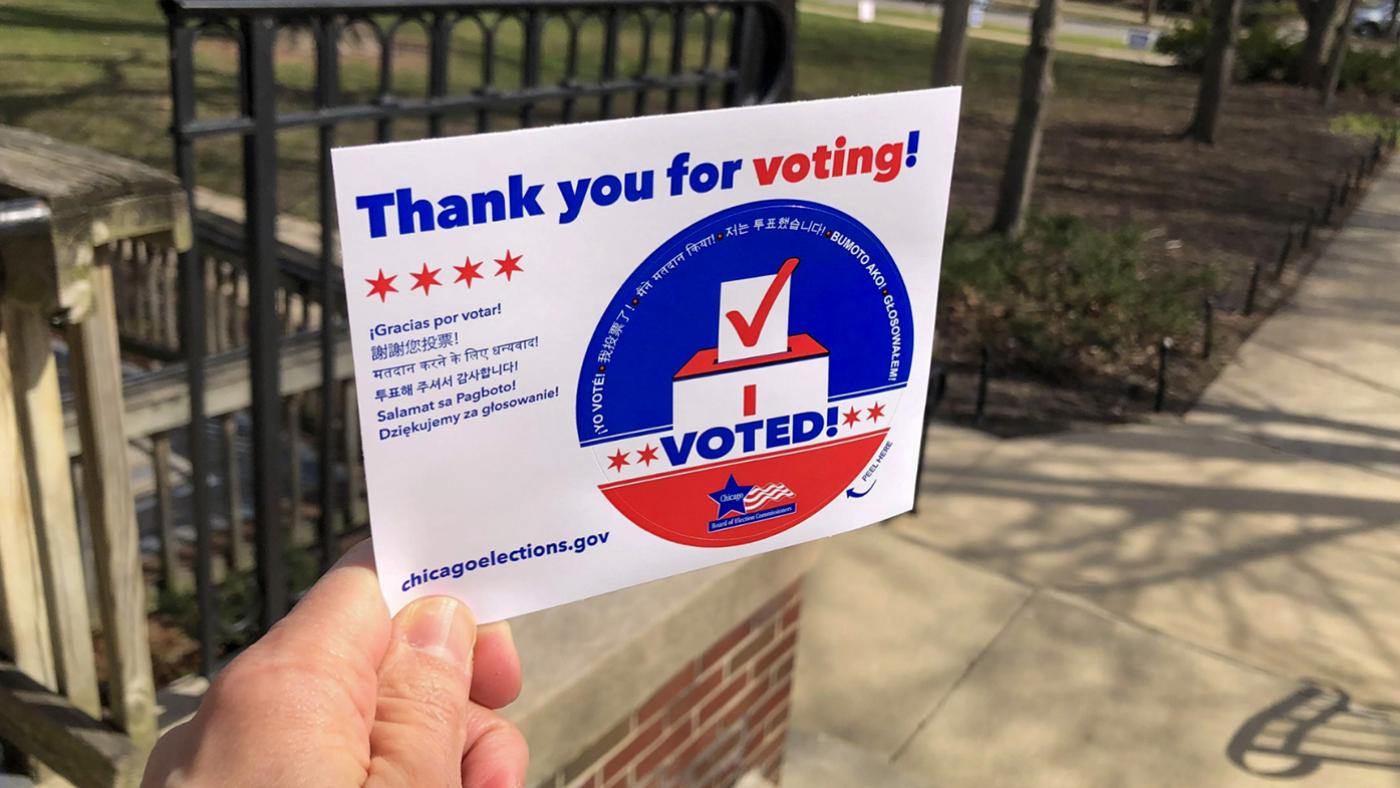The Performers in 'The American Epic Sessions'
Daniel Hautzinger
June 6, 2017
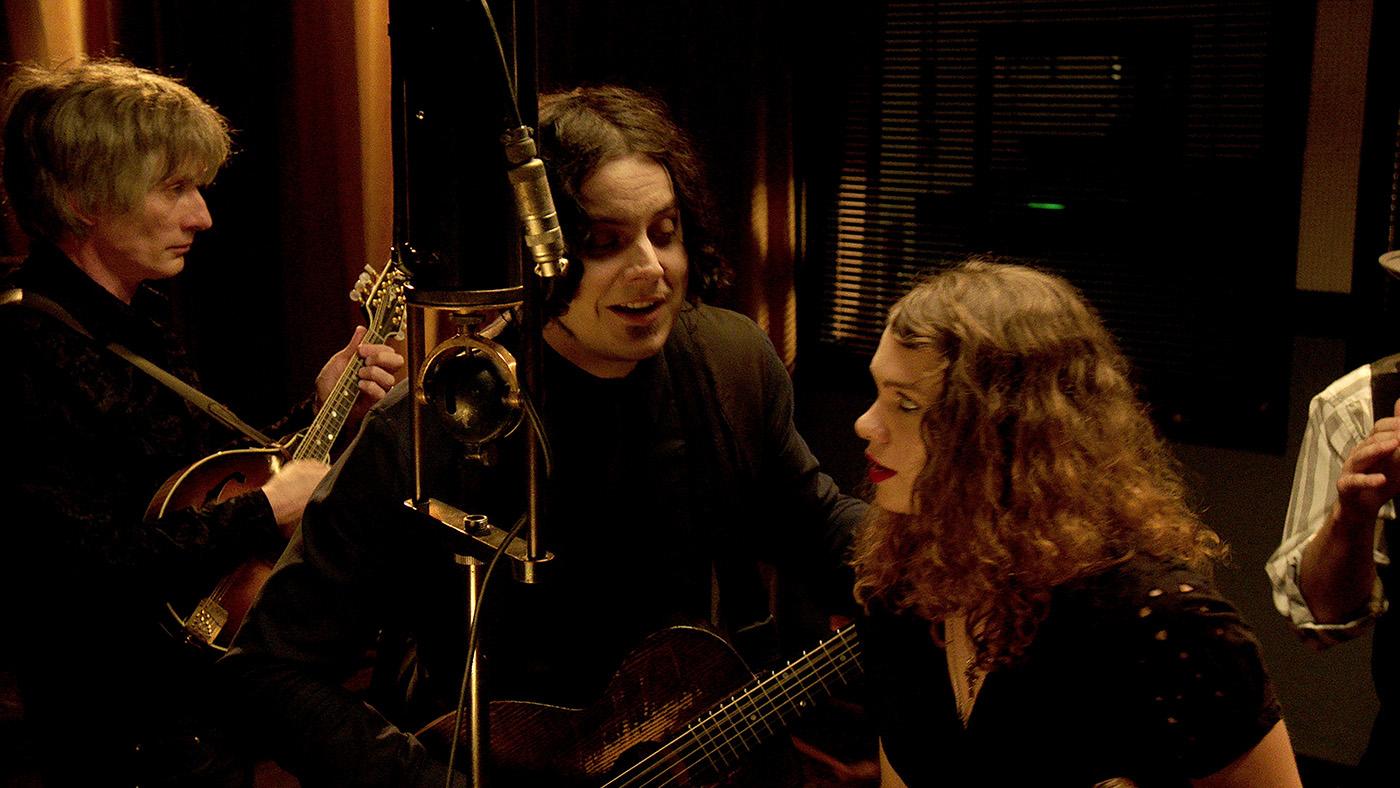
The American Epic Sessions airs on Tuesday, June 6 at 9:38 pm. All of American Epic is available to stream for free.
The American Epic Sessions brings you to the birth of the modern recording industry, placing you inside a 1920s recording studio with the first microphone and first electric recording machine as contemporary musicians record songs from that era and before. Produced by Jack White and T Bone Burnett, the sessions grant a fuzzy immediacy to the performances. And they also present long-forgotten difficulties: a song has to be recorded in one take, it can’t be over four minutes long, the relative volume of different instruments is determined by their placement in relation to the mic, the equipment is prone to breaking.
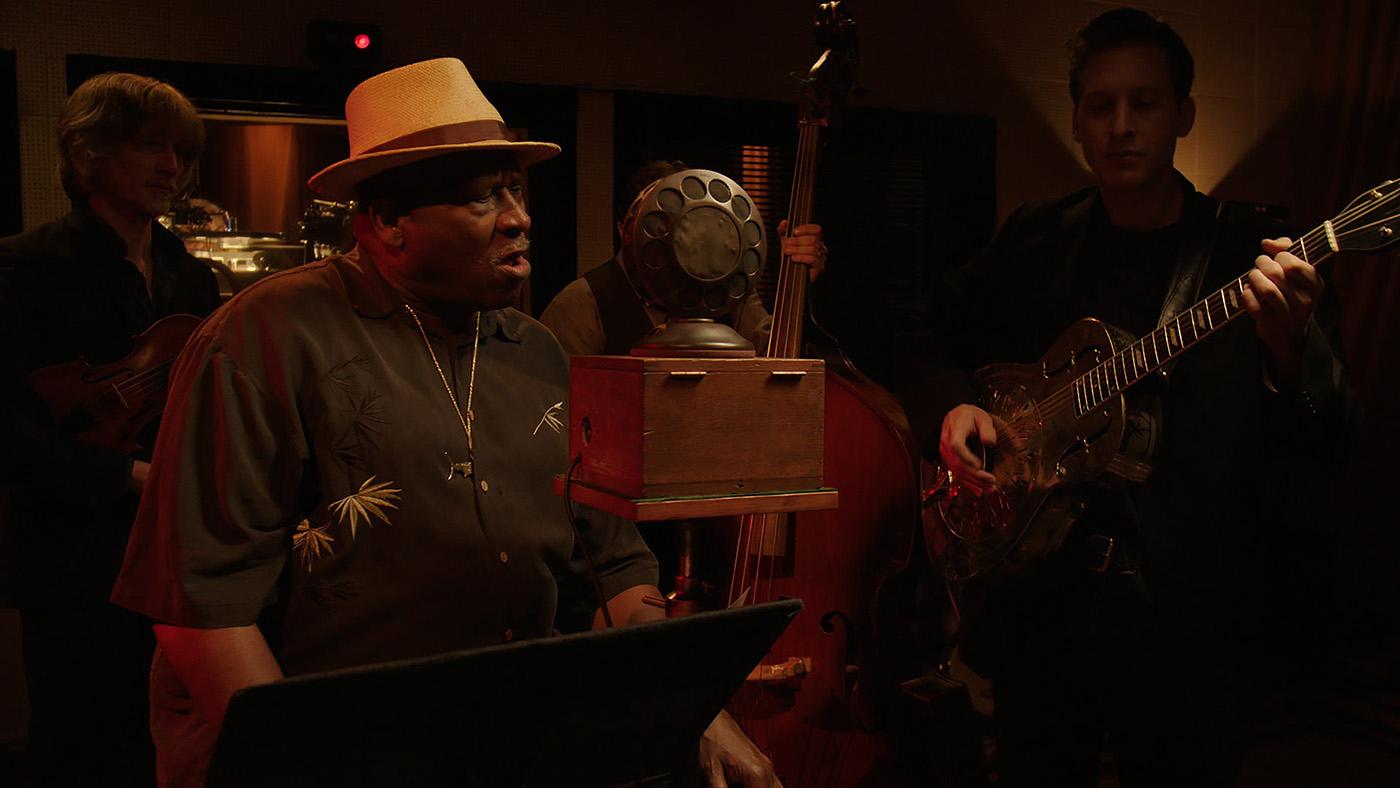 Taj Mahal. Photo: ©2017 Lo-Max Records Ltd.But as blues legend Taj Mahal – whose already gritty voice is perfect for the antique sound – says to explain why he took part in the sessions, “The same machine that my heroes and mentors played on, that this industry got jumpstarted from, I’d certainly like to be a part of that… I love it.” Discover some of the extraordinary performers and the songs they record here.
Taj Mahal. Photo: ©2017 Lo-Max Records Ltd.But as blues legend Taj Mahal – whose already gritty voice is perfect for the antique sound – says to explain why he took part in the sessions, “The same machine that my heroes and mentors played on, that this industry got jumpstarted from, I’d certainly like to be a part of that… I love it.” Discover some of the extraordinary performers and the songs they record here.
Nas – “On the Road Again”
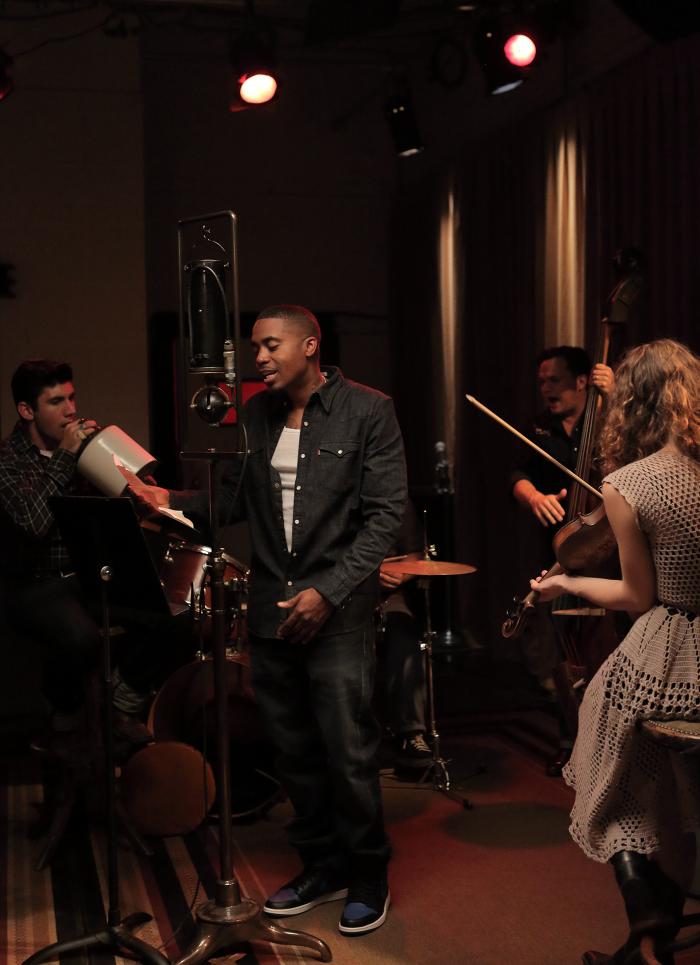 Nas. Photo: ©2017 Lo-Max Records Ltd.The only rapper included in the session, Nas takes on a 1928 song by the Memphis Jug Band and finds it to be much closer to his own music than the intervening decades would suggest.
Nas. Photo: ©2017 Lo-Max Records Ltd.The only rapper included in the session, Nas takes on a 1928 song by the Memphis Jug Band and finds it to be much closer to his own music than the intervening decades would suggest.
Los Lobos – “El Cascabel”
While the venerable Latin rock band records this 19th century Mexican folk song, a strap integral to the recording machine breaks, leading Jack White to draw on his training as an upholsterer to save the sessions.
Elton John – “Two Fingers of Whiskey”
Instead of covering an old song, Elton John composes one on the spot to lyrics by long-time collaborator Bernie Taupin. It’s a rare glimpse of the creative process, as Jack White and T Bone Burnett offer suggestions and work out the structure and harmonies.
Jerron “Blind Boy” Paxton – “Candy Man”
Although “Blind Boy” Paxton is only 28 years old, he sings, performs, and dresses as if he were from the ‘30s. So the recording machine and mic bring out a gleeful nerd, as he tries to figure out how they work before recording a song by Blind Gary Davis.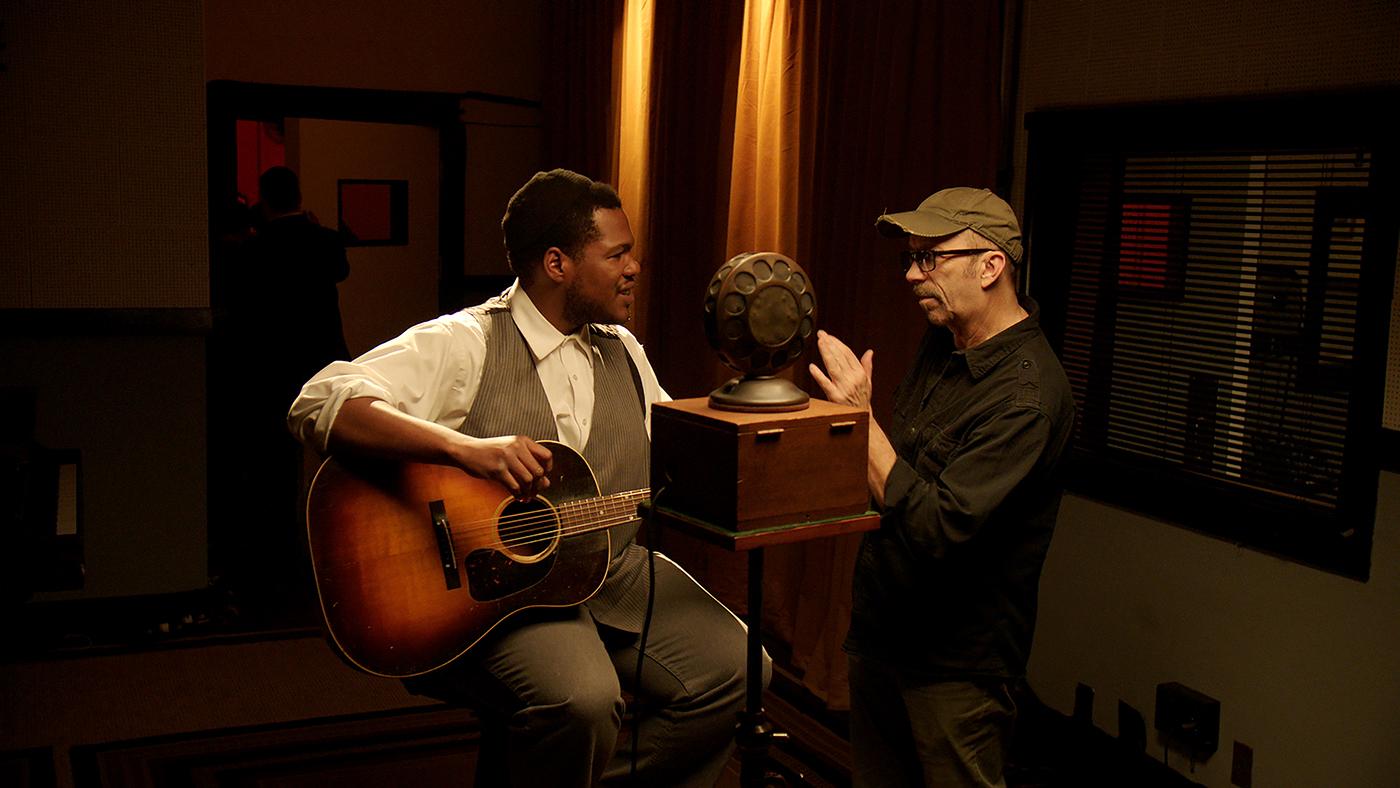 Jerron "Blind Boy" Paxton with producer Duke Erikson. Photo: ©2017 Lo-Max Records Ltd.
Jerron "Blind Boy" Paxton with producer Duke Erikson. Photo: ©2017 Lo-Max Records Ltd.
Bettye LaVette – “’Tain’t Nobody’s Business”
Before recording this Frank Stokes song from 1928, LaVette describes the profound influence that some of the early African-American recording artists had on her, as well as the troubled racial aspects that accompanied them and prevented her from wanting to tour with people like B. B. King.
Avett Brothers – “Just a Closer Walk With Thee”
A low, buzzing tone suddenly interrupts the neo-folk band as they record this 19th century gospel song – the mic has broken. Just more evidence of the difficulties of early recording technology.
Ana Gabriel – “Mal Hombre”
The best-selling Mexican singer is enthralled by the machine while she records this Lydia Mendoza song from 1934. She lauds the technology for bringing out the purity in Latin American music.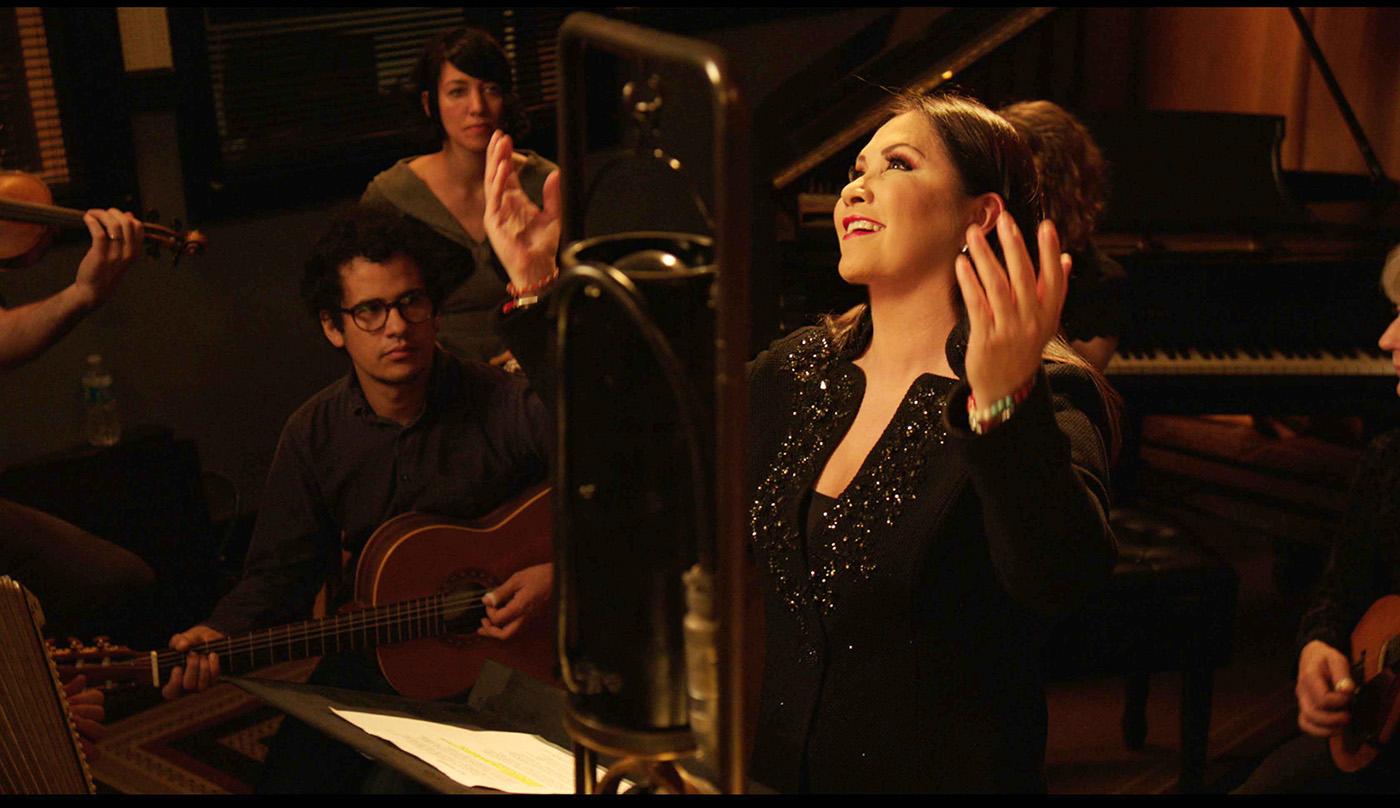 Ana Gabriel. Photo: ©2017 Lo-Max Records Ltd.
Ana Gabriel. Photo: ©2017 Lo-Max Records Ltd.
Beck – “Fourteen Rivers Fourteen Floods”
Bringing an original song and a choir to the session, the alternative icon Beck doesn’t get a satisfactory record until the thirteenth take. Balancing his voice, guitar, and the choir on a single, rudimentary mic proves to be a difficult experiment as the producers try out different configurations and even make some musicians face away from the mic.
Rhiannon Giddens – “One Hour Mama”
Early this year, Giddens released an album that recovered near-lost songs by African-American artists as well as better known pieces, and she is known for her work in roots music with the Carolina Chocolate Drops. So the tone of her voice, her phrasing, and vibrato are ideal for this technology, making this record of a Victoria Spivey song sound as if it were made some 80 or 90 years ago.
Willie Nelson, Merle Haggard – “The Only Man Wilder Than Me” and “Old Fashioned Love” by Bob Wills and His Texas Playboys
Nelson and Haggard record two songs: the first written by them immediately before the session (they quibble over lyrics: “we wrote it, we can do what we want with it”) and the second from 1935.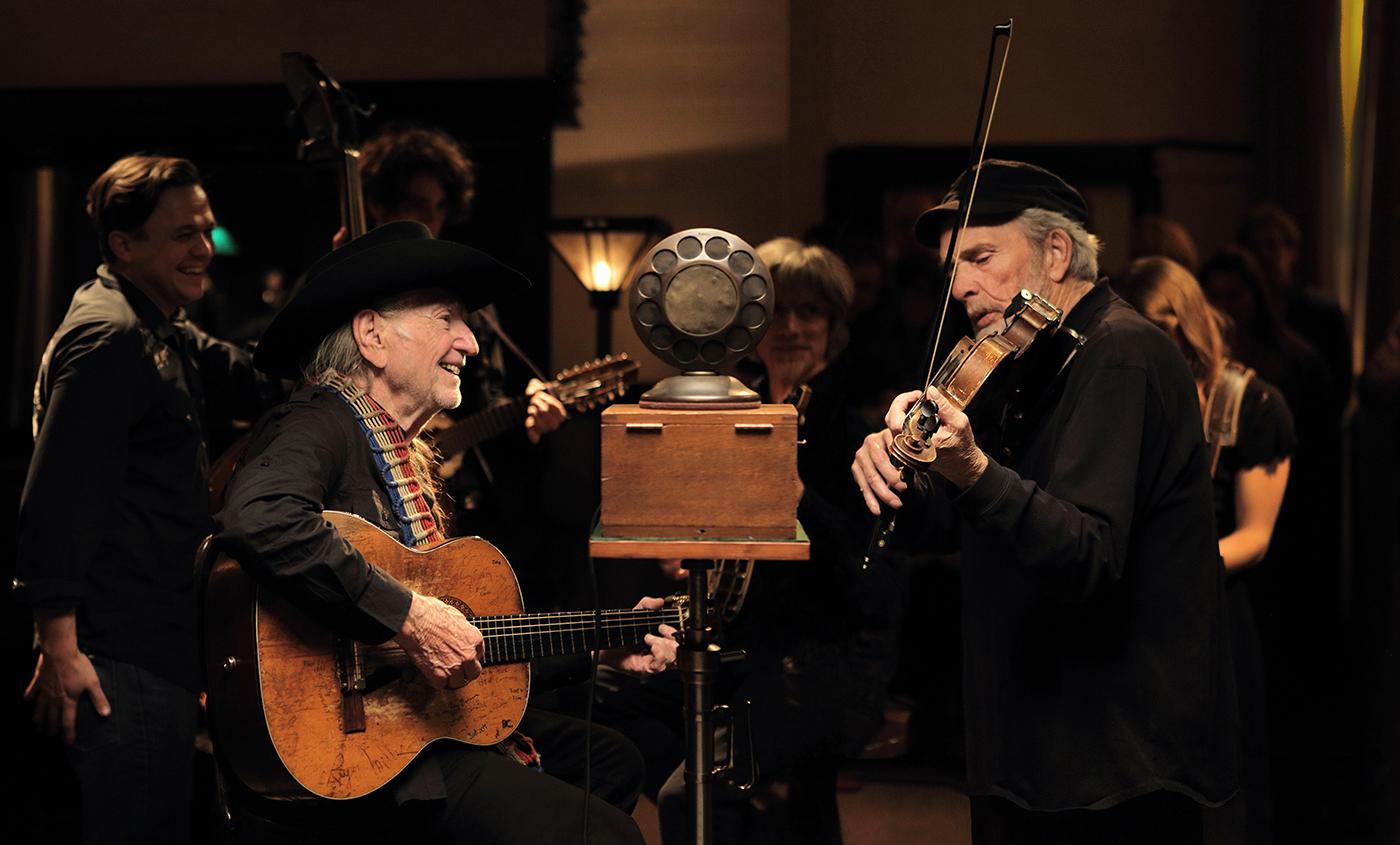 Willie Nelson and Merle Haggard. Photo: ©2017 Lo-Max Records Ltd.
Willie Nelson and Merle Haggard. Photo: ©2017 Lo-Max Records Ltd.

